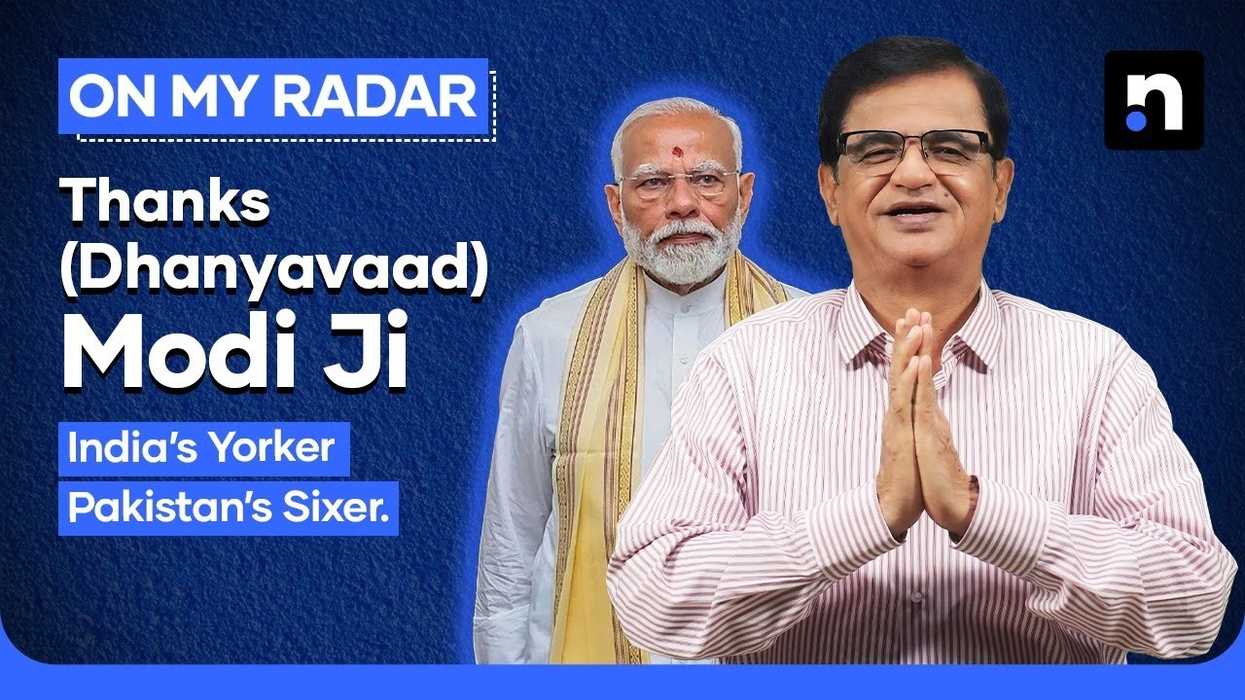How Modi’s war backfired, bringing Pakistan pride, unity and prestige
Kamran Khan credits India’s aggression for reviving trust in Pakistan’s armed forces and institutions
News Desk
The News Desk provides timely and factual coverage of national and international events, with an emphasis on accuracy and clarity.
Kamran Khan offered a strikingly sarcastic “thank you” to Indian Prime Minister Narendra Modi, claiming that Modi’s decision to order an attack on Pakistan in May backfired spectacularly and ended up unifying the Pakistani nation, elevating its global standing, and reviving trust in its armed forces.
“Thank you, Modi ji. Thank you,” Kamran Khan said in a vlog, calling the four-day conflict “a gift in disguise” that triggered a national and diplomatic resurgence for Pakistan.
According to Khan, the decision by India to launch a military operation on May 7 turned into a defining moment. Pakistan’s Air Force, he said, responded within the first hour by shooting down six Indian fighter jets — including three Rafale aircraft — in a show of strength that stunned observers worldwide.
“The Indian Air Force was grounded for two days,” Khan claimed. “This performance by Pakistan’s Air Force silenced years of toxic propaganda on social media and helped rebuild unshakable bonds between the military and the public.”
Khan also said the Pakistani government’s swift move to lift restrictions on X (formerly Twitter) during the conflict was a symbolic gesture to show trust in national unity. “It was a 100 percent effective example of rebuilding confidence between institutions and the people,” he said.
The war, according to Khan, also had major geopolitical consequences.
He said the United States played a decisive role in brokering a ceasefire and, for the first time, extended an official invitation to Pakistan’s Army Chief, Field Marshal Syed Asim Munir, to the White House. President Donald Trump, Khan noted, had lunch with Field Marshal Munir in the Cabinet Room and praised his role in securing peace.
“This wasn’t just any meeting,” Khan said. “It was extended beyond its scheduled time, and Trump publicly appreciated Munir’s leadership in averting a wider war.”
Khan pointed to how Modi’s “military misadventure” exposed India’s diplomatic isolation.
“No major country stood with India,” Khan said. “From The Economist to The New York Times, the global media called out Indian disinformation. The Indian narrative collapsed under the weight of its own lies.”
Khan also mentioned strong praise for Pakistan from the head of U.S. Central Command, Gen. Michael Kurilla, who referred to Pakistan as a “strategic partner” and emphasized that the U.S. cannot ignore Islamabad due to its ties with India.
Highlighting the economic ripple effects, Khan said American investment — especially in cryptocurrency — was now headed to Pakistan.
Khan also pointed to renewed interest from global financial institutions, including continued support from the IMF, a fresh $800 million package from the Asian Development Bank, and progress in $40 billion worth of negotiations with the World Bank.
“This has all happened while India lobbied against us,” he said. “Even FATF rejected India’s push to re-list Pakistan.”
Khan further credited Modi’s strategy for renewed regional support. Kuwait lifted its 19-year visa ban on Pakistanis, and countries like China, Turkey, and Azerbaijan gave full diplomatic backing during the crisis.
“Even Russia is lobbying to include Pakistan in BRICS,” Khan said. “This never would have happened if Modi hadn’t made that mistake.”
He praised the role of Pakistan’s military and civilian leadership in capitalizing on the moment. Prime Minister Shehbaz Sharif and Field Marshal Munir have since visited key allies including Saudi Arabia, Turkey, and the UAE.
He also referred to warming relations with Afghanistan, which has now appointed an ambassador to Islamabad and expressed interest in joining the China-Pakistan Economic Corridor alongside Beijing.
“The world is starting to view Islamabad and Beijing as a united front,” he said. “Any future misadventure by India would mean taking on both nations.”
Wrapping up, Khan said that Modi had inadvertently achieved what Pakistan’s leadership had long struggled to do: revive national unity, strengthen military morale, and elevate Pakistan’s position on the world stage.
“Modi ji, we thank you,” Khan concluded. “Your war gave Pakistan the victory of unity, the trust of the world, and the prestige we waited decades for.”








Comments
See what people are discussing